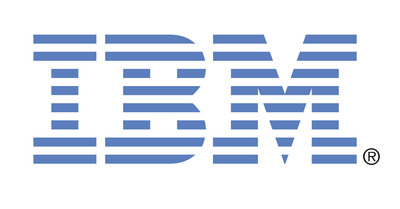IBM Research and Carnegie Mellon Create Open Platform to Help the Blind Navigate Surroundings
YORKTOWN HEIGHTS, N.Y. and PITTSBURGH, Oct. 15, 2015 /PRNewswire/ -- Scientists from IBM Research (NYSE: IBM) and Carnegie Mellon University (CMU) today announced the first of a kind open platform designed to support the creation of smartphone apps that can enable the blind to better navigate their surroundings.
The IBM and CMU researchers used the platform to create a pilot app, called NavCog, that draws on existing sensors and cognitive technologies to inform blind people on the CMU campus about their surroundings by "whispering" into their ears through earbuds or by creating vibrations on smartphones. The app analyzes signals from Bluetooth beacons located along walkways and from smartphone sensors to help enable users to move without human assistance, whether inside campus buildings or outdoors. Researchers are exploring additional capabilities for future versions of the app to detect who is approaching and what is their mood. NavCog app will soon be available at no cost on the App Store.
The first set of cognitive assistance tools for developers is now available via the cloud through IBM Bluemix at http://hulop.mybluemix.net. The open toolkit consists of an app for navigation, a map editing tool and localization algorithms that can help the blind identify in near real time where they are, which direction they are facing and additional surrounding environmental information. The computer vision navigation application tool turns smartphone images of the surrounding environment into a 3-D space model to help improve localization and navigation for the visually impaired.
"While visually impaired people like myself have become independent online, we are still challenged in the real world. To gain further independence and help improve the quality of life, ubiquitous connectivity across indoor and outdoor environments is necessary," said IBM Fellow Chieko Asakawa, visiting faculty member at Carnegie Mellon. "I'm excited that this open platform will help accelerate the advancement of cognitive assistance research by giving developers opportunities to build various accessibility applications and test non-traditional technologies such as ultrasonic and advanced inertial sensors to assist navigation."
The combination of these multiple technologies is known as "cognitive assistance," an accessibility research field dedicated to helping the blind regain information by augmenting missing or weakened abilities. Researchers plan to add various localization technologies, including sensor fusion, which integrates data from multiple environmental sensors for highly sophisticated cognitive functioning, such as facial recognition in public places. Researchers also are exploring the use of computer vision to characterize the activities of people in the vicinity and ultrasonic technology to help identify locations more accurately.
"From localization information to understanding of objects, we have been creating technologies to make the real-world environment more accessible for everyone," said Martial Hebert, director of the Robotics Institute at Carnegie Mellon. "With our long history of developing technologies for humans and robots that will complement humans' missing abilities to sense the surrounding world, this open platform will help expand the horizon for global collaboration to open up the new real-world accessibility era for the blind in the near future."
IBM has been committed to technology innovation and accessibility for people with disabilities for more than 100 years, helping to ensure that employees, customers and citizens have equal access to information they need for work and life. Some early innovations for the blind include a Braille printer, a talking typewriter, and the first commercially viable screen reader.
About IBM Research
Now in its 70(th) year, IBM Research continues to define the future of information technology with more than 3,000 researchers in 12 labs located across six continents. Scientists from IBM Research have produced six Nobel Laureates, 10 U.S. National Medals of Technology, five U.S. National Medals of Science, six Turing Awards, 19 inductees in the National Academy of Sciences and 14 inductees into the U.S. National Inventors Hall of Fame - the most of any company. For more information, please visit www.research.ibm.com.
For more information about IBM, please visit www.ibm.com, IBM Accessibility (http://www.ibm.com/able) and IBM's University Relations programs (http://www.ibm.com/university/awards).
About Carnegie Mellon University (CMU)
Carnegie Mellon (www.cmu.edu) is a private, internationally ranked research university with programs in areas ranging from science, technology and business, to public policy, the humanities and the arts. More than 13,000 students in the university's seven schools and colleges benefit from a small student-to-faculty ratio and an education characterized by its focus on creating and implementing solutions for real problems, interdisciplinary collaboration and innovation.
Media Contacts:
Caroline Vespi for IBM Byron Spice for CMU
cvespi@us.ibm.com bspice@cs.cmu.edu
925-212-9184 412-268-9068
Photos: https://www.flickr.com/gp/ibm_research_zurich/A341G3
http://photos.prnewswire.com/prnvar/20090416/IBMLOGO
Video - http://youtu.be/w17iS0AJHjU
Logo - http://photos.prnewswire.com/prnh/20090416/IBMLOGO
To view the original version on PR Newswire, visit:http://www.prnewswire.com/news-releases/ibm-research-and-carnegie-mellon-create-open-platform-to-help-the-blind-navigate-surroundings-300160351.html
SOURCE IBM Corporation
